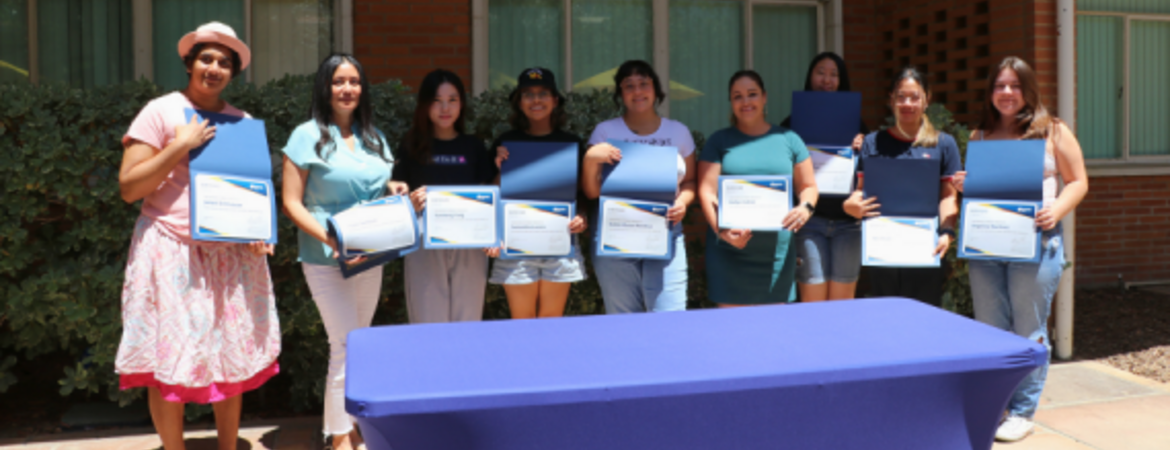
The program provided undergraduate students with new skills and tools they’ll carry with them throughout their academic careers.
As a concept, digital scholarship broadly refers to the use of digital tools or methods for scholarly activities like research, teaching, and publishing. The goal is to leverage digital tools and platforms to enhance the traditional scholarly process.
UCR Library staff led 24 undergraduate students through a six-week digital scholarship program that saw the students explore primary sources from UCR's Special Collections & University Archives. This experience focused on student activism and BIPOC student voices from UCR’s past while also teaching the students valuable digital research skills.
Digital Scholarship Librarian Rachey Starry (who left the UCR Library in August 2023), Digital Initiatives Specialist Krystal Boehlert, Special Collections Public Services, Outreach & Community Engagement Librarian Sandy Enriquez, and Innovative Media Librarian Alvaro Alvarez led the effort to get the Digital Scholarship Program up and running for summer 2023 and are happy with the results.
“It was great to be able to share different skills, ideas, and techniques with the students,” Krystal said. “Being able to do a deep dive in the archives as an undergraduate is valuable — they gained practical research skills they’ll be able to apply in their courses moving forward.”
Students in the free, non-credit bearing program received hands-on training using different kinds of software to create and analyze digitized materials and produced their own findings about the past through workshops, lab sessions, and proposing their own digital exhibit.
The workshops offered covered a range of topics, which included: Encountering Archives: Materiality and Space, DIY (Do-It-Yourself) Imaging in the Archives, Metadata & Data Management for Digitized Archival Materials, OCR (Optical Character Recognition): Turning Digitized Documents into Searchable Texts, and Close and Distant Reading: Quantitative Text Analysis for Archival Materials.
“My favorite was the Imaging workshop,” shared Bobbi Monae Mandour, an English major. “3D imaging and printing isn’t something that I had been exposed to. I’m not a techie, but it was great to learn 3D printing is something I can do here on campus.”
While at first glance it may seem like the program would only be of interest to undergraduate students in the humanities, students studying in other fields were also part of the program and found the experience rewarding.
“I’m a business major, but when I saw words like metadata and 3D/2D imaging, I was interested,” said Yumeng Yang. “I really liked the program and what I learned, plus it was free and it didn’t conflict with any classes.”
Many students are eager to apply the new skills and research methods they learned in the program to their own coursework.
"With the tools I learned in the program, I feel like I can really impress my professors,” said Samantha Lucero, a Sociology/Law and Society major reflecting on her own experience. “Having a better understanding of primary sources, different ways to cite, and research skills are things I’m excited to carry with me. "
This program provided a unique opportunity for undergraduates to access archives, explore digital research tools, and engage in hands-on learning. Students who participated in the program, like Samantha, recommend applying to the program if the UCR Library offers it again next summer.
“You’ll learn really useful skills you can use at UCR,” Samantha said. “And as someone interested in graduate school, I feel like I strengthened skills I’ll need for the future.”